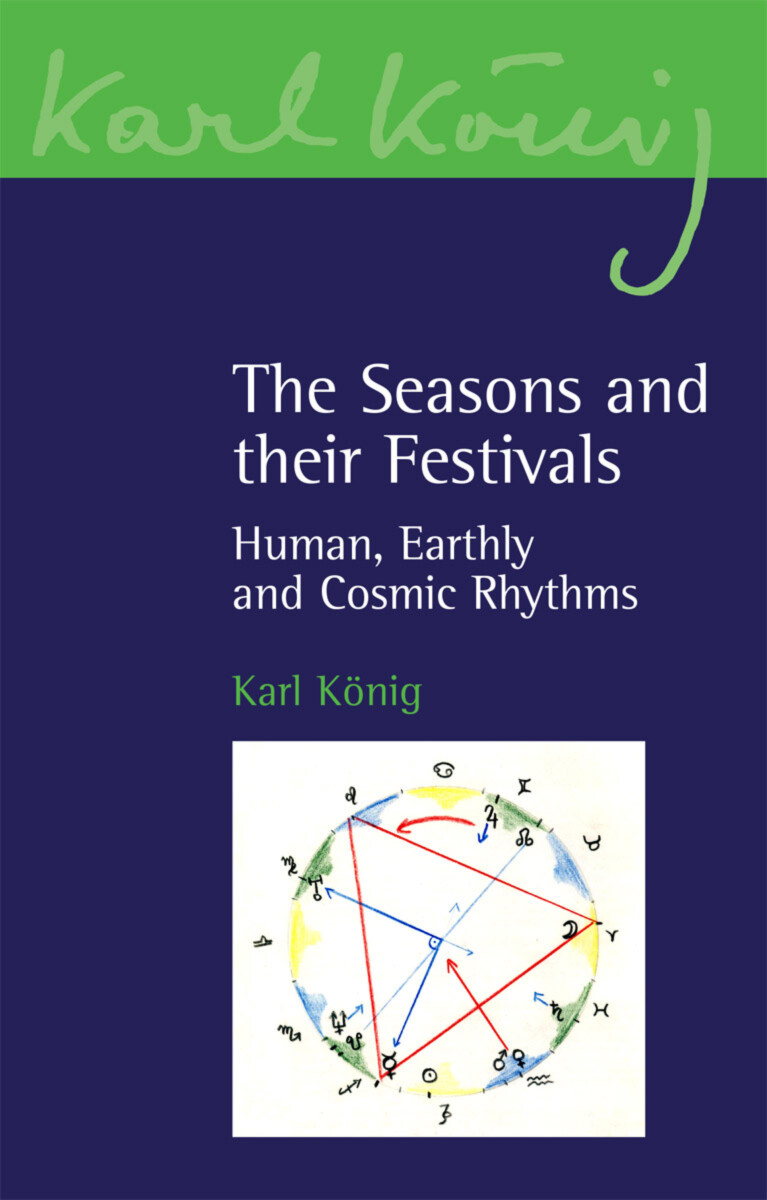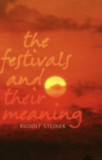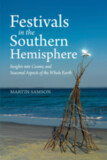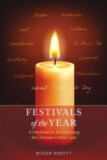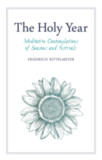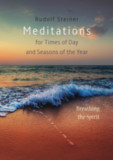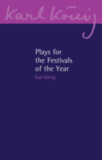- Publisher
Floris Books - Published
30th August 2022 - ISBN 9781782507901
- Language English
- Pages 192 pp.
- Size 5.43" x 8.5"
Through his work as a physician, Karl König explored the relationship between the rhythm of the seasons, the Christian festivals, thinking in particular about their effect on human individuals and communities.
This fascinating collection of König's essays, lectures, and notes looks into the cycle of the year and the various aspects of the Christian festivals, from Easter to the Twelve Holy Days of Christmas. He discusses the idea that people can derive inner strength from festival celebrations through an active social life and participation in community, and that a strong, healthy community life relies on celebrating the festivals throughout the year.
C O N T E N T S:
Karl König and the Festivals (Richard Steel)
The Human Being and the Festivals of the Year
The Human Being and the Cycle of the Year
The Year as a Living Being
Individual and Historic Conscience
A Michaelmas Lecture, 1965
An Experience of Music and Destiny, Advent 1954
On the Significance of the Twelve Holy Days
New Year’s Eve Address, 1965–66
The “Entry into Jerusalem”
The Experience of Easter within the Human Being
World Breath and World Pulse
Easter, the Festival of Resurrection
Earthly Creation, Human Form, and Human Ego
Whit Sunday Address
Whitsun Address
Notes
Bibliography
Index
Karl König
Dr. Karl König (1902–1966) born on September 25th 1902 in Vienna, Austria, the only son of a Jewish family who owned a shoe shop. He studied zoology, biology, and medicine at the University of Vienna, graduating in 1927. During his studies on embryology, König encountered the works of Rudolf Steiner through Goethe's scientific writings. He immediately identified with Steiner and was soon acquainted with a number of his followers, including Ita Wegman.
Upon graduation, König was offered several high-profile positions in Vienna, but instead accepted an invitation from Ita Wegman to join her clinic in Arlesheim, Switzerland.
König's time at the Clinic would shape the Camphill movement. It was here that he met his wife and co-founder, Tilla Maasberg, and it was here that he first witnessed the Advent Garden. During this festival, during which children with learning disabilities circle a spiral of moss, lighting a candle from a large central beacon, he promised to dedicate his life “to the care and education of these children.”
Following his time at Arlesheim, König moved to Germany and was involved in founding the Pilgramshain Institute—one of the early curative educational (therapeutic) centers based on anthroposophy. However, due to the political pressure of the Nazi regime, König was forced to leave Germany in 1936. He returned to Vienna, where he operated a successful medical practice and led anthroposophic study groups until 1938.
Fleeing Austria after Nazi annexation in 1938, König became part of a small group of doctors, teachers, and artists to be granted political asylum in the United Kingdom in 1939. König moved to Aberdeenshire, Scotland, where this group founded a home for children with learning disabilities, which became the beginning of the Camphill movement. After World War II, more schools were established, as well as curative education villages for adults with disabilities, based on the ideal of working together as a community.
In the following decades, König's Aberdeenshire community grew and expanded into Britain, Europe, and North America, becoming the Camphill movement we know today. During this period, König worked tirelessly to help children and adults with special needs through publications, talks, and seminars—as well as by establishing communities around the world.
Karl König returned to Germany in 1964 and began yet another community, this one near Überlingen, on Lake Constance (Bodensee), where he died in 1966.


